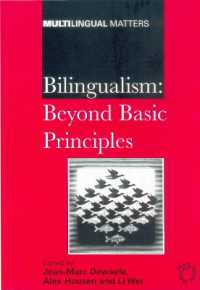基本説明
This book examines how countries' domestic legal traditions (civil law, common law, Islamic law) influence their willingness to support international courts, such as the International Court of Justice or the International Criminal Court.
Full Description
International courts have proliferated in the international system, with over one hundred judicial or quasi-judicial bodies in existence today. This book develops a rational legal design theory of international adjudication in order to explain the variation in state support for international courts. Initial negotiators of new courts, 'originators', design international courts in ways that are politically and legally optimal. States joining existing international courts, 'joiners', look to the legal rules and procedures to assess the courts' ability to be capable, fair and unbiased. The authors demonstrate that the characteristics of civil law, common law and Islamic law influence states' acceptance of the jurisdiction of international courts, the durability of states' commitments to international courts, and the design of states' commitments to the courts. Furthermore, states strike cooperative agreements most effectively in the shadow of an international court that operates according to familiar legal principles and rules.
Contents
1. The creation and expansion of international courts; 2. Major legal traditions of the world; 3. A rational legal design theory of international adjudication; 4. Domestic legal traditions and the creation of the International Criminal Court; 5. Domestic legal traditions and state support for the World Court; 6. The rational design of state commitments to international courts; 7. The consequences of support for international courts; 8. Conclusion.








